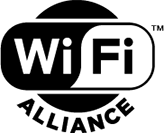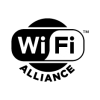Wi-Fi® is key to closing the digital divide
The digital divide, the gap between individuals or groups who have access to digital technologies and those who do not, is a persistent problem in societies around the world.
Children who do not have access to the internet do not develop the necessary knowledge and skills to participate in the modern workforce. Many essential services, such as healthcare, banking, and government services are moving online, and a lack of access can continue to marginalize individuals. With more and more socialization moving online, whether through social media or teleconferencing, a lack of connectivity can isolate individuals from each other and limit knowledge of current events.
Today is World Wi-Fi® Day, a day of support for connecting the unconnected, and Wi-Fi Alliance® fully supports this mission and advocates for the benefits Wi-Fi brings to the world.
Regional and socioeconomic differences drive connectivity division
One of the main differences in online connectivity is between rural and urban/suburban areas, where American rural areas consistently trail behind at 72 percent adoption of home broadband, compared to 79 percent adoption of suburban adults[1]. One of the primary reasons for this difference is the cost of infrastructure, as it makes less financial sense to undertake rural cabling projects with fewer potential customers. And despite being more connected than their rural counterparts, 21 percent of suburban adults lacking broadband internet access shows us that expanding connectivity should be a top priority. The global situation is even more urgent, with 45 percent of people around the world lack internet access[2]. In developing countries, financial disparities play a prominent role in lack of connectivity.
Wi-Fi to the rescue
As an affordable yet powerful technology, Wi-Fi® is positioned to play an important role in closing the digital divide in the coming years. Public Wi-Fi hotspots deployed in libraries, community centers, schools, and other public places help support underserved communities that may not have Wi-Fi access at home. In particular, bringing Wi-Fi into schools allows students and teachers to access online educational resources such as research, digital textbooks, and online courses. Greater connectivity through Wi-Fi empowers individuals to participate in the digital economy by starting online businesses and accepting remote work opportunities, bringing greater prosperity to underserved communities. Financial disparity plays a strong role in access to the internet, and the rollout of government Wi-Fi programs designed to subsidize broadband access can help solve this problem.
Expanding Wi-Fi to the 6 GHz band further supports widespread internet access
The prospect of expanding Wi-Fi access is gaining momentum worldwide. More than 60 countries have now opened at least part of the 6 GHz band to unlicensed use, amounting to a digital superhighway that allows greater Wi-Fi performance with less congestion. This is critical for ensuring high performance in community Wi-Fi centers that may have hundreds of people connected to a single hotspot.
Expanding Wi-Fi access is one of the most important levers we can pull to support underserved communities and close the digital divide. Governments and private companies alike hold the keys to expanding connectivity across the globe, and Wi-Fi Alliance will continue to do its part by ensuring that Wi-Fi enabled equipment continues to interoperate and perform according to industry-agreed standards, as well as by advocating for Wi-Fi adoption worldwide.
[1] Pew Research, August 2021
The statements and opinions by each Wi-Fi Alliance member and those providing comments are theirs alone, and do not reflect the opinions or views of Wi-Fi Alliance or any other member. Wi-Fi Alliance is not responsible for the accuracy of any of the information provided by any member in posting to or commenting on this blog. Concerns should be directed to info@wi-fi.org.




Add new comment